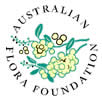Abstract of a paper based on work funded in part by the Australian Flora Foundation
Karen D. Sommerville, Amelia J. Martyn and Catherine A. Offord
The Australian Botanic Garden, Mount Annan Drive, Mount Annan, NSW 2567, Australia
Botanical Journal of the Linnean Society, 2013, 172, 187–204.
The germination requirements of 19 herbs in the Australian Alps were investigated to determine which species may be sensitive to predicted climate changes. Seeds were subjected to factorial treatments of cold stratification for 0, 4, 8 and 12 weeks, followed by incubation at constant temperatures of 10, 15, 20 and 25 °C and alternating temperatures of 20/5 and 20/10 °C. Germination responses were used to identify stratification-dependent species, to classify dormancy and to determine optimum conditions for laboratory germination. Ordinal logistic regression was used to determine whether the duration of stratification required for at least 50% germination could be predicted by seed weight, seed length, embryo : seed ratio or species distribution (latitudinal range, altitudinal range and maximum altitude). The Kruskal–Wallis test was used to determine any significant differences in stratification requirement between endospermic and non-endospermic seeds. Species varied considerably in their response to the treatment combinations, and therefore their dormancy class. No significant predictors of stratification requirement were identified by ordinal logistic regression (P > 0.9); however, there was a significant difference in stratification requirement between endospermic and non-endospermic seeds (P = 0.003). Species with non-endospermic seeds did not require any stratification to germinate well over a range of temperatures, and appear most likely to remain stable or expand in range in response to climate warming. Conversely, the need for at least 8 weeks of cold stratification was associated with the presence of endosperm and either a restricted distribution or upland ecotypes of widely distributed species. Alpine species with endospermic seed and a restricted distribution are most likely to contract in range under climate change and would be appropriate to prioritize for ex situ conservation. © 2013 The Linnean Society of London,, Botanical Journal of the Linnean Society, 2013, 172, 187–204.
ADDITIONAL KEYWORDS: alpine – climate – dormancy – germination – plant conservation – seed structure – temperature requirement.
